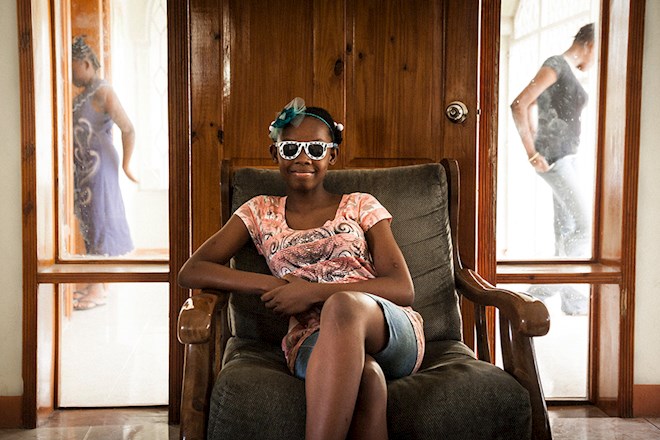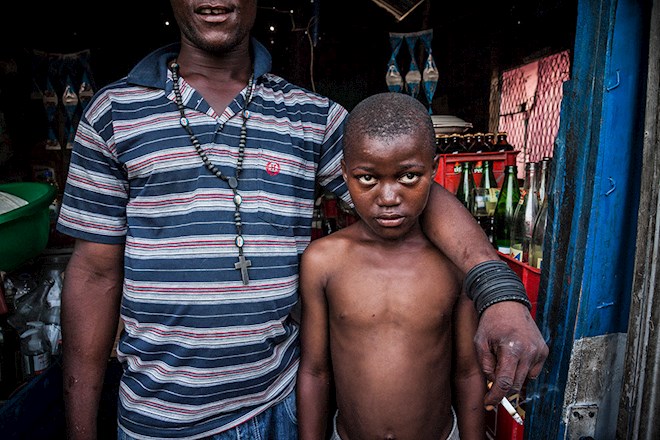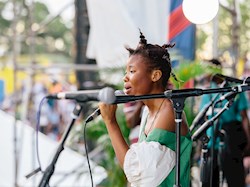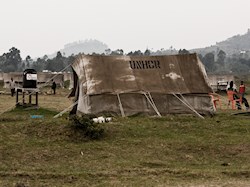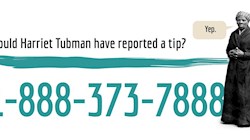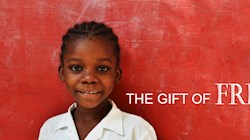In modern Haiti more than 300,000 children are victims of domestic slavery. In Haitian Creole they are called "restaveks" from the French "rester avec" meaning "stay with." Many parents, who live in poverty, are unable to feed their children and give them away to more affluent families, hoping that their child will live in better conditions and will be able to get an education. But, with few exceptions, these children become slaves, working in the homes of their "masters" from early morning till night. Many of the restaveks are not permitted to go to school and are exposed to domestic and sexual violence.
Photos and stories via Vlad Sokhin and Restavek Freedom Foundation
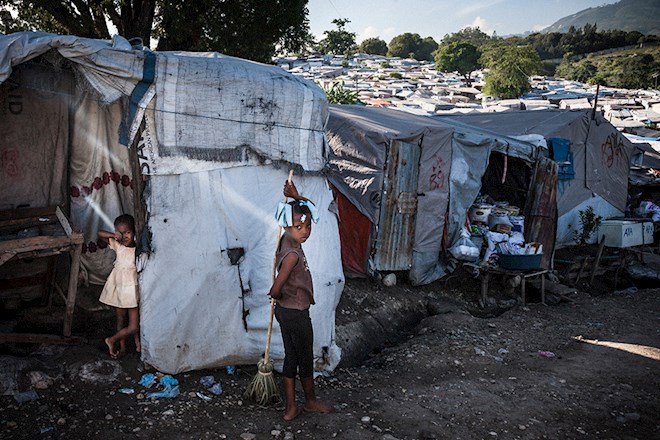
Children on the street of the Pétion-Ville refugee camp. Many families lost their houses in the earthquake of 2010, and parents had to send their kids away because of the lack of money and food. Many of the refugee children have become domestic slaves in wealthier homes.
©Vlad Sokhin
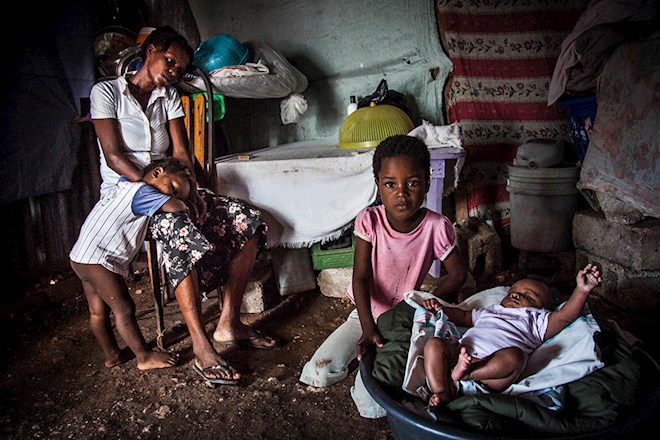
Amberline (second from right), 7, with her three-month-old brother, Loubes. Their mother Adeline (left), 32, cannot afford to feed her three kids and pay for Amberline's school education. Adeline states that in few months she is going to give Amberline away to another family as a restavek.
©Vlad Sokhin
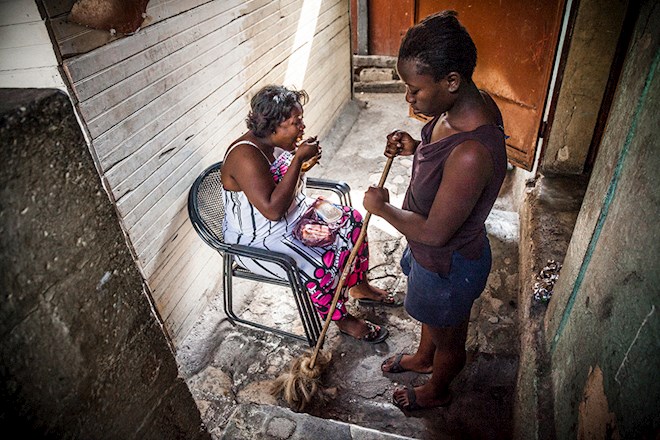
Bellefleur, 16, has lived for the last three years as a restavek doing all the work in the house of her "masters."
©Vlad Sokhin
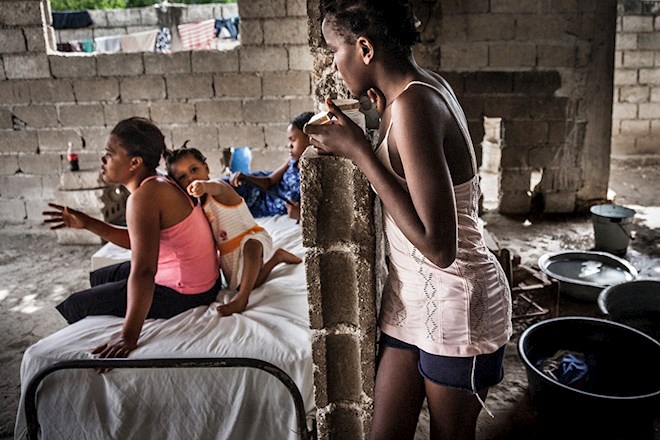
Marie-Ange, 14, an orphan and a restavek in the house of a Haitian middle-class family, watches how her "owners" talk with their visitors. As a domestic slave Marie-Ange cannot be present in the same room with the guests but should always be around ready for any order.
©Vlad Sokhin
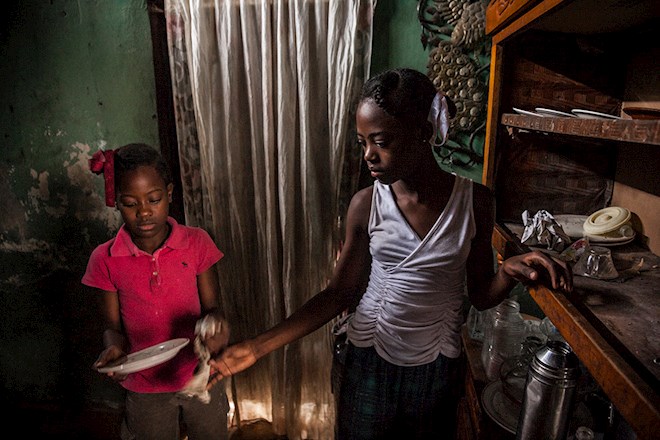
Viviane (left), 11, helps her sister Islande, 13, clean dishes in their host family's house. The sisters have lived in servitude since 2008 when their mother gave them away.
©Vlad Sokhin
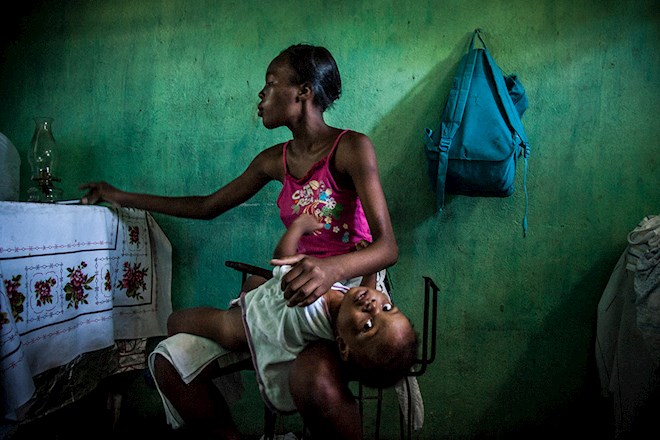
Starlie, 14, changes the diaper of her "owner's" son. Starlie became a restavek when she was 10. She is allowed to go to school because the Restavek Freedom Foundation pays her school fees. After school, Starlie returns to her host family's house to work until night.
©Vlad Sokhin
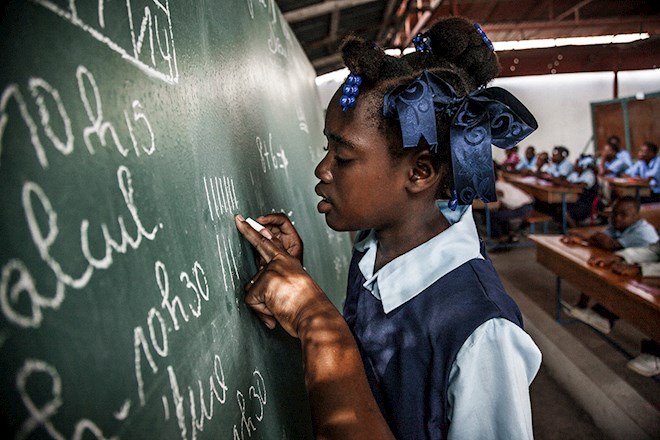
A 12-year-old restavek girl learns how to count for the first time in her life at Kwadbouke School, Port-au-Prince. The school provides free education, health care and psychological care to child victims of slavery.
©Vlad Sokhin
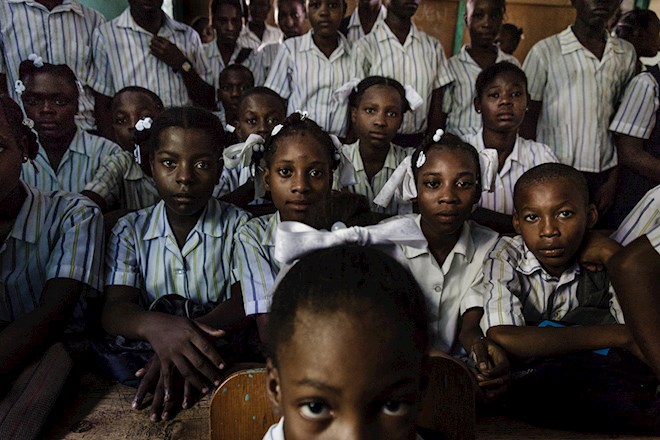
Children in a primary school classroom in one of the neighborhoods of Port-au-Prince. All of these children are restaveks and receive free education provided by Restavek Freedom Foundation. They still live with their host families, and every day after school, they go back to their chores. Most of the kids are not allowed to play with other children, and school is the only place for them to interact with their peers.
©Vlad Sokhin
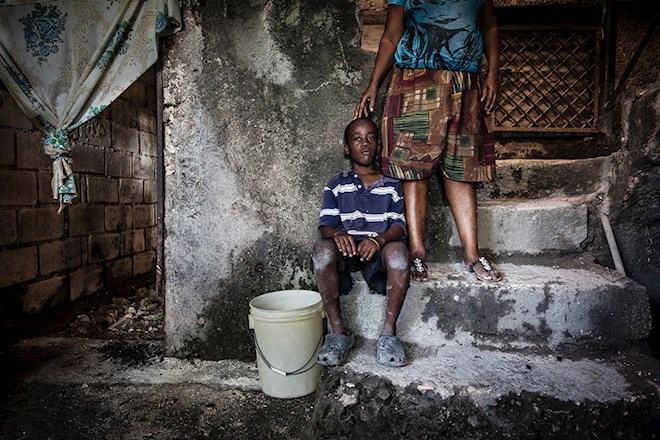
Enso, 10, was found by his host family on the street when he was a year old. He began working for them when he was two and now does all the chores in a household of six.
©Vlad Sokhin
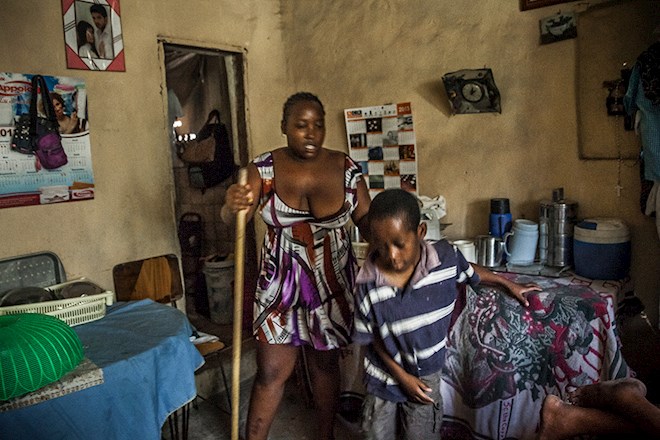
One of the members of the host family abuses Enso, 10, for not properly doing his work in the house.
©Vlad Sokhin
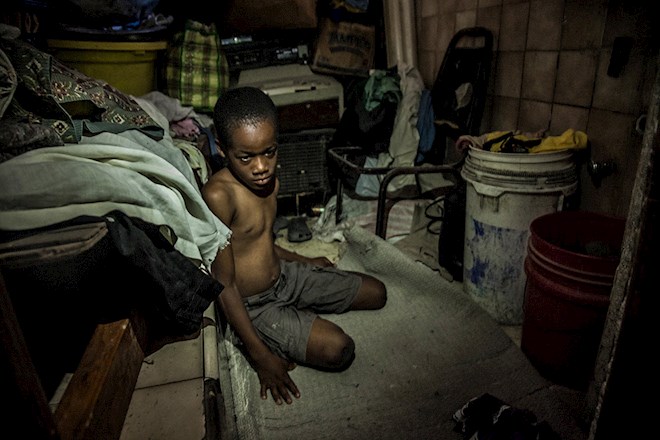
Enso, 10, sleeps on rags on the floor of the storage room. He is not allowed to have his own bed and pillow.
©Vlad Sokhin
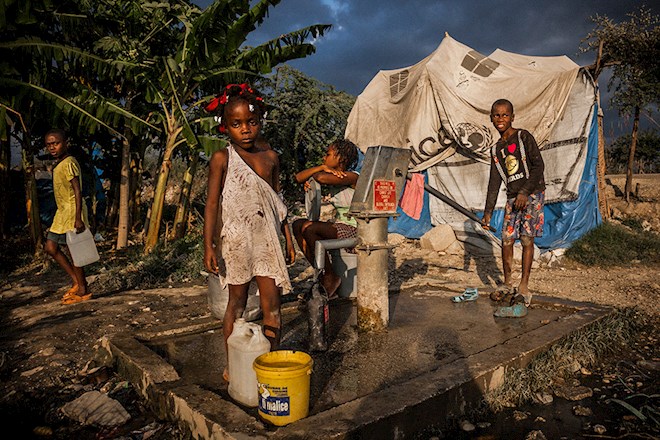
Kids fetch water from the public water pump in the tent camp of the Pois Congo slum, Port-au-Prince. Child labor is very common in Haiti, and many children start working at a very early age.
©Vlad Sokhin
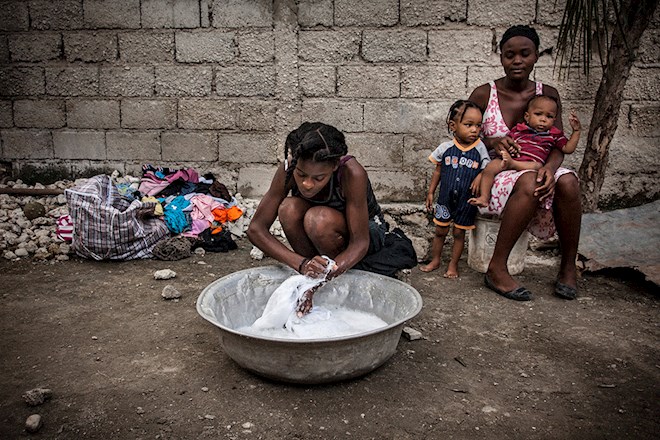
Edeline, 14, who became a restavek after her parents died in 2004, washes clothes for the host family of 13 people while one of her "masters," Jules, sits nearby with two of the children.
©Vlad Sokhin
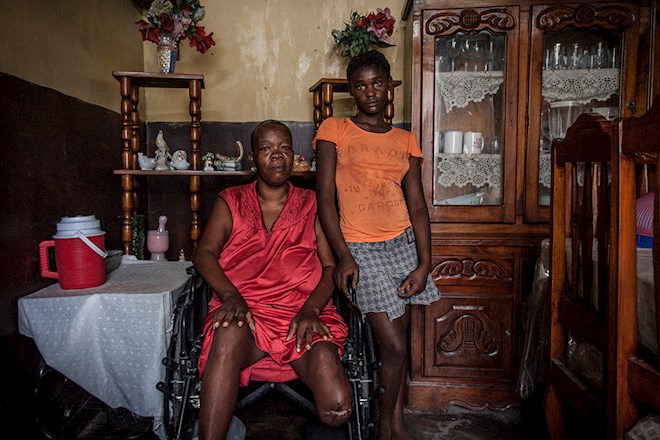
Jeanse, 16, stays close to one of her hosts. She does not have any identification documents and is not allowed to go to school. She sleeps and eats on the floor and is constantly exposed to beatings and verbal offenses.
©Vlad Sokhin
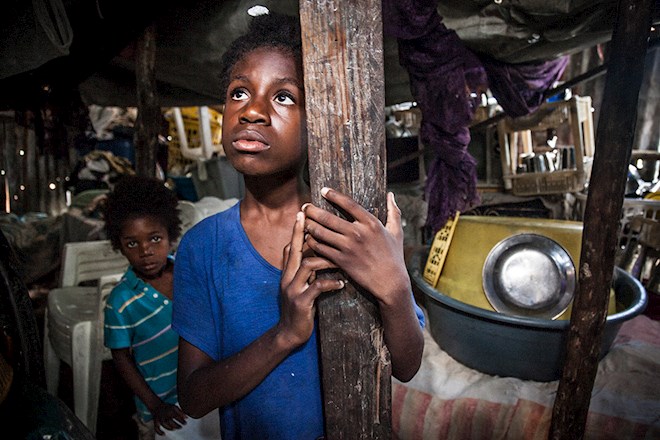
François-Jessica, 11, with her brother and François-Samuel, 7, inside the house of their "masters." Their mother gave them up after the earthquake in 2010, and since that time, they have been serving for a poor family of four people living in a dwelling of the slum area of Morne L'Hospital, Port-au-Prince.
©Vlad Sokhin
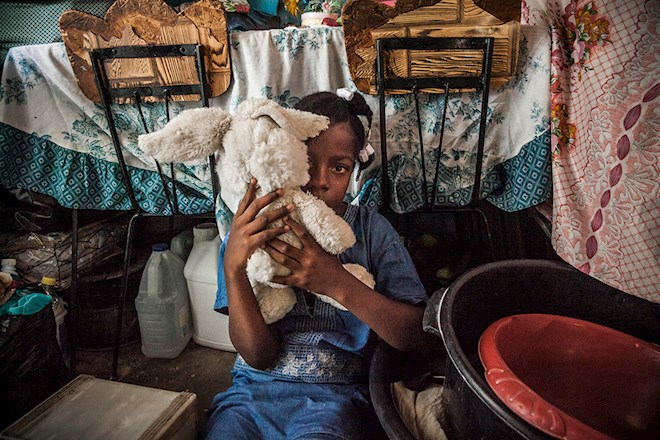
A restavek girl, Mamose, 12, plays with a bunny - the only toy she has - while her "master" is not at home.
©Vlad Sokhin
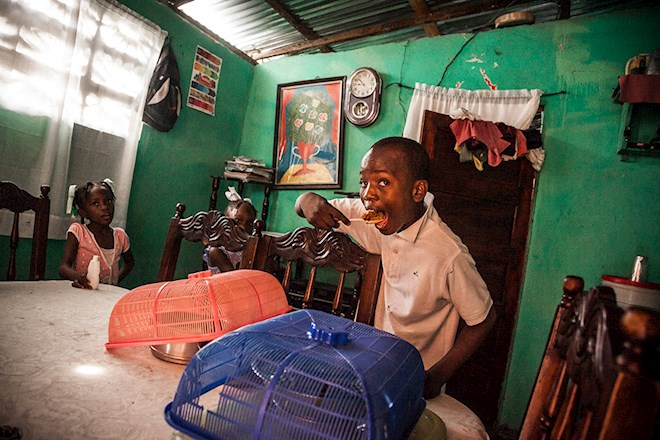
Olrtega, 13, grabs a bite from the plate of his hosts while they aren't home. He became a restavek in 2008 when his mother gave him away. He is forbidden to have meals at the table with his host family.
©Vlad Sokhin
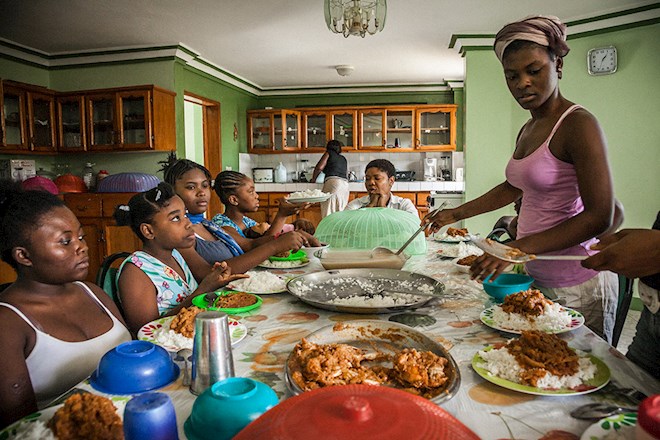
Lunch in a transition house built by the Restavek Freedom Foundation to provide shelter for restavek girls who were subjected to extreme abuses by host families. Residents of the transition house live in a high-security environment and attend one of the best schools in Port-au-Prince.
©Vlad Sokhin
of




















Related Actions
Save the Hotline Number
Store the hotline number, and be ready to call when the need arises
Help Former Restavek's Prepare for School
Give much-needed school supplies for children formerly trapped in domestic servitude


